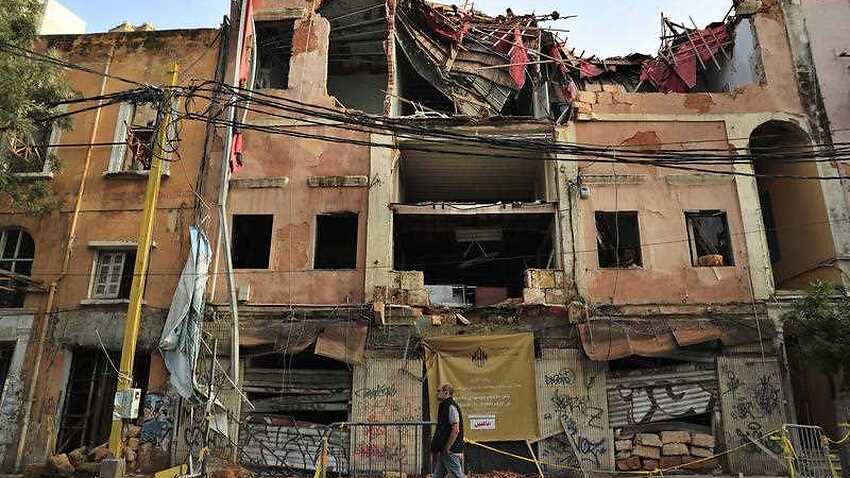When a warehouse in the Lebanese capital of Beirut exploded six months ago, killing more than 190 and wounding thousands, the residents of the city were already doing it tough.
The deadly 4 August blast – the result of 2,750 tonnes of ammonium nitrate unexpectedly detonating – came in the middle of the coronavirus pandemic and a crippling economic crisis, the worst the country has seen in more than 30 years.
The culmination of the blast and other crises has meant many families are still facing poverty half a year later, schools are still closed, water is not running, and health services are still not accessible, World Vision Australia has warned.
“Six months ago, families in Beirut who were already struggling to survive COVID-19 and an economic crisis were forced to deal with another catastrophe in the form of a devastating explosion,” World Vision Lebanon’s country director Hans Bederski warned.
“Six months later they have not recovered. In fact, things are worse for them.”
The not-for-profit aid organisation has estimated more than 540,000 children in Beirut are at risk of being forced into early marriage and child labour as parents are left struggling to make ends meet.
More than half of Lebanon’s population lives below the poverty line, according to the United Nations, with the financial crisis resulting in a recession, a plunge in foreign reserves, and rising inflation.
“COVID-19 has left parents with no work and their children with no access to education and at risk of forced labour and marriage,” Mr Bederski said.
“It is almost impossible for these people to overcome this dire situation on their own.”
Meanwhile, family members and friends of those killed in the blast continue to grapple with the loss of their loved ones.
Western Sydney resident Stefan Abi Chakra lost his brother Shadi in the blast, which also injured his mother and destroyed their family home in Beirut.
He told SBS News he was still reeling from the “big loss” of his brother, recalling through tears the moment he received the news Shadi, who was deaf, was missing after the blast.
“After eight hours … they told me they found my brother, they heard his voice … They told me ‘your brother is shouting but we cannot get to him’, because he is under a three-floor building,” he said.
“After 24 hours, they took my brothers death.”
International travel bans put in place to stop the spread of coronavirus to Australia have meant Mr Charkra has been unable to return home to grieve with his family.
The isolation has heightened the pain, he said, coupled with fears for the wellbeing for his remaining family.
“He died because he couldn’t breathe. My brother, he was deep, he couldn’t talk and he couldn’t hear to help,” he said.
“He was the only one who’s looking after my mum.”
Lebanon is currently under a strict coronavirus lockdown in a bid to stem the spread of infection.
The total number of cases recorded in the country has now passed 300,000.
The round the clock curfew, among the strictest in the world, was introduced on 14 January and has since been extended to 8 February, barring non-essential workers from leaving their home.
For people already struggling to keep afloat, the lockdown has been a devastating blow.
Earlier this week, the Lebanese government announced a price hike for subsidised bread by about 20 per cent. A large bag of flatbread, previously weighing 900 grams and costing 2,000 Lebanese pounds, would now weigh 930 grams and cost 2,500 pounds, the National News Agency said.
“We call for international solidarity for the people of Lebanon, they are in no less of a crisis situation now than they were on 4 August,” Mr Bederski said.
You can watch Shadi’s story in Beirut: After the Blast at SBS On Demand.
With AFP.









